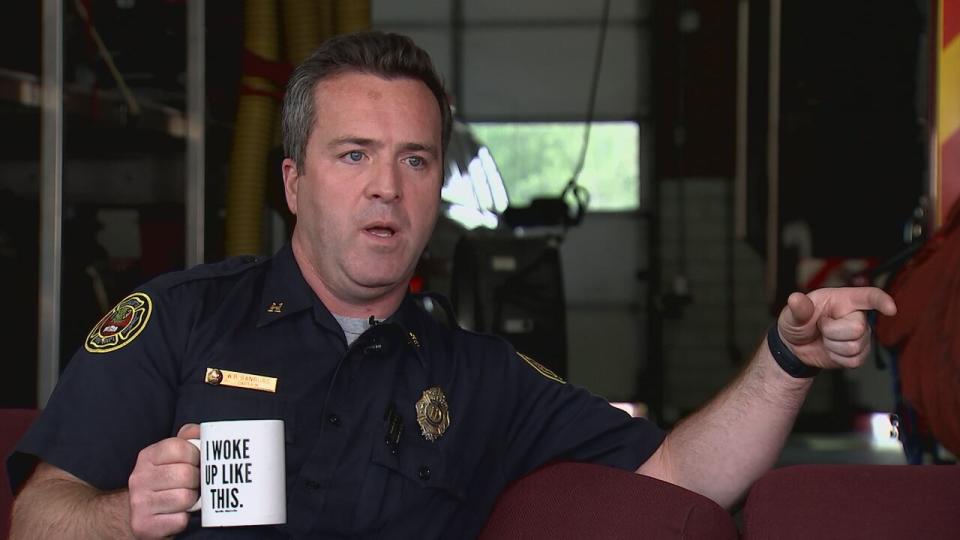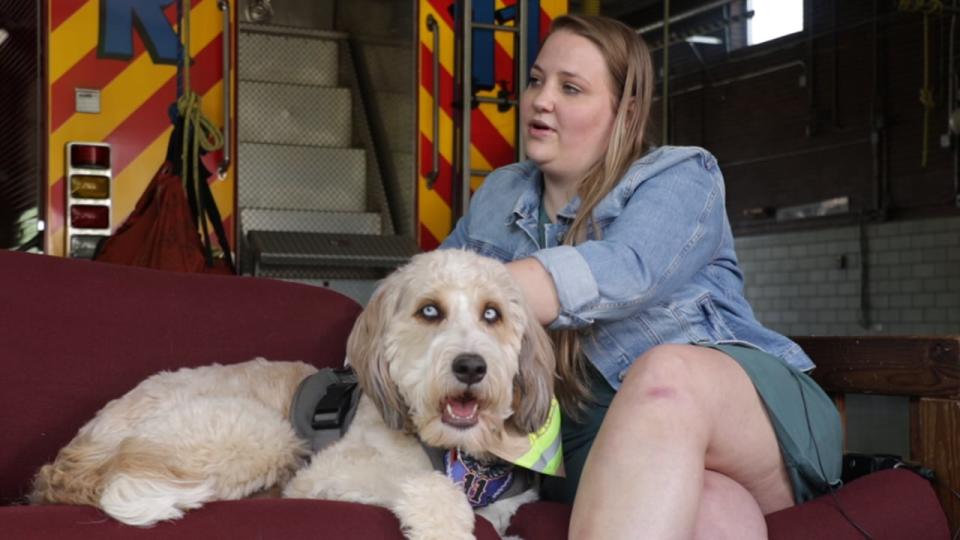Therapy dogs help Charlotte firefighters’ mental health
Mental health is one of our pillars here at Channel 9 because it touches everyone in our community, especially first responders. It’s a particularly important value this week, as Wednesday was the start of Mental Health Awareness Month.
When Channel 9’s Deneige Broom sat down with Charlotte firefighters about their therapy dogs, she had no idea two weeks later this story could be even more helpful.
Carolinas Get Real: Mental Health Resources
Charlotte Fire Capt. Will Sanburg has seen a lot in his 23 years on the job; some good, a lot of bad, and at times, some lifechanging.
“I suffer from anxiety and depression and bipolar disorder. I take medication on a regular basis,” he told Broom.

He told Broom about the moment he was fighting a fire and a ceiling collapsed.
“I was trapped. I was cut off. I began to run low on air. And it was at a fire over in -- we were assisting the county in Matthews. And I never called out for help,” Sanburg said.
He said that feeling of helplessness led him down a dark road until he decided to get help.
“Led me down a pretty significant path of really going every week to see a mental health clinician,” Sanburg said. “She helped me move away from this idea that I needed to find a new job. Because I was career-searching, because I was like I can’t do this anymore.”
Not everyone will reach out, so that’s where Asher comes in. Asher is one of four therapy dogs assigned to Charlotte Fire stations. His handler, Nicole Berg, is a behavioral health specialist whose sole job is to help the first responders tackle their biggest invisible struggles.
“It’s really difficult for some of the guys to want to talk, and they might not even want to be there,” Berg said. “But you’ll see the dogs come in, they’ll sit with them, they’ll start petting them, and you see the stress start to melt away and they begin to open up over time.”

“So in the first responder world as a whole, it’s male-dominated, and there’s this like, ‘I don’t need help with anything, I can fix my problems,’” Sanburg said. “We have a problem with that.”
In the year and a half since Berg and Asher joined CFD, she said she’s seen more firefighters taking proactive steps.
“I get a ton of captains worried about their firefighters on their crew, and they’re like, how can I help them? Or what can we do?” Berg said.
Broom interviewed Sanburg and Berg two weeks ago, never expecting the tragedy that would unfold for law enforcement officers on Monday.
Capt. Sanburg shares his story frequently hoping to break the stigma of mental health struggles among first responders. His final thoughts could apply to our law enforcement community as well.
“It’s OK not to be OK,” he said. “The worst thing is to isolate and feel like they’re alone and keep that a secret and not share it.”
It’s a message he and Asher will spend the rest of their careers trying to deliver.
(WATCH BELOW: State to expand mental health training for teens)

